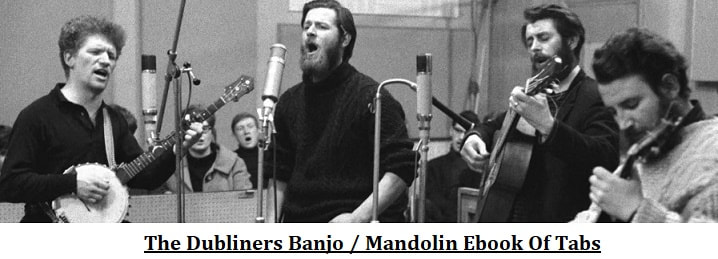Where The Soul Never Dies Mandolin Tab With Chords
Where The Soul Never Dies Mandolin Tab With Piano Chords in the key of G Major. Recorded by The Oak Ridge Boys plus Tracy Chapman.
The hymn 'Where The Soul Never Dies' is a well-known and beloved Christian song that has been sung in churches and religious gatherings for decades. Its origins can be traced back to the early 20th century, and it has since become a staple in gospel music and a source of comfort and hope for many believers. The lyrics of the song speak of a place where the soul never dies, a place of eternal peace and rest. This thesis will explore the history and significance of the hymn 'Where The Soul Never Dies' and its enduring impact on Christian worship.
The hymn was written by American gospel songwriter and musician William M. Golden in 1913. Golden was born in Alabama in 1878 and grew up in a devout Christian family. He was greatly influenced by the music of the church and began writing hymns at a young age. His most famous composition, 'Where The Soul Never Dies,' was inspired by a phrase he heard in a sermon by a visiting preacher. The preacher spoke of a place where there is no pain, sorrow, or death, and the words resonated deeply with Golden. He immediately began composing the hymn, and it was first published in 1913.
The lyrics of 'Where The Soul Never Dies' paint a vivid picture of a heavenly home where there is no sickness, death, or sorrow. The first verse begins, 'To Canaan's land, I'm on my way / Where the soul of man never dies / My darkest night will turn to day / Where the soul of man never dies.' This verse sets the tone for the rest of the song, emphasizing the promise of eternal life and the hope of a better future. The following verses continue to describe the joys of this promised land, including reuniting with loved ones and living in the presence of God.
The hymn's popularity grew quickly, and it became a favorite among churchgoers in the Southern United States. Its simple and catchy melody, coupled with its uplifting lyrics, made it easy to sing and remember. As a result, it was often sung in Sunday school classes, revivals, and other religious gatherings. Over the years, 'Where The Soul Never Dies' has been recorded and performed by numerous artists, including Johnny Cash, Alison Krauss, and Ricky Skaggs.
One of the reasons for the hymn's enduring popularity is its universal message of hope and comfort. Its lyrics offer a sense of peace and reassurance to those who have lost loved ones or are facing difficult times. The song's emphasis on the eternal nature of the soul and the promise of a better life after death has resonated with many believers over the years. It has become a source of strength and encouragement for those facing adversity and has been a staple in funeral services as a reminder of the hope that Christians have in the afterlife.
Moreover, 'Where The Soul Never Dies' has also played a significant role in shaping the genre of gospel music. The song's popularity has inspired many other gospel songs with similar themes, such as 'I'll Fly Away' and 'When We All Get to Heaven.' The hymn's impact has also extended beyond the Christian community, with its lyrics being quoted in popular culture, such as in the movie 'O Brother, Where Art Thou?' and the television series 'Lost.'
In conclusion, the hymn 'Where The Soul Never Dies' holds a special place in the hearts of many Christians. Its powerful message of hope and eternal life has resonated with believers for over a century and continues to bring comfort and strength to those who sing it. The hymn's enduring popularity and influence on gospel music and popular culture are a testament to its significance in the Christian faith. It serves as a reminder of the promise of a heavenly home where the soul will never die, and believers will be reunited with their loved ones and live in the presence of God for eternity.
The hymn was written by American gospel songwriter and musician William M. Golden in 1913. Golden was born in Alabama in 1878 and grew up in a devout Christian family. He was greatly influenced by the music of the church and began writing hymns at a young age. His most famous composition, 'Where The Soul Never Dies,' was inspired by a phrase he heard in a sermon by a visiting preacher. The preacher spoke of a place where there is no pain, sorrow, or death, and the words resonated deeply with Golden. He immediately began composing the hymn, and it was first published in 1913.
The lyrics of 'Where The Soul Never Dies' paint a vivid picture of a heavenly home where there is no sickness, death, or sorrow. The first verse begins, 'To Canaan's land, I'm on my way / Where the soul of man never dies / My darkest night will turn to day / Where the soul of man never dies.' This verse sets the tone for the rest of the song, emphasizing the promise of eternal life and the hope of a better future. The following verses continue to describe the joys of this promised land, including reuniting with loved ones and living in the presence of God.
The hymn's popularity grew quickly, and it became a favorite among churchgoers in the Southern United States. Its simple and catchy melody, coupled with its uplifting lyrics, made it easy to sing and remember. As a result, it was often sung in Sunday school classes, revivals, and other religious gatherings. Over the years, 'Where The Soul Never Dies' has been recorded and performed by numerous artists, including Johnny Cash, Alison Krauss, and Ricky Skaggs.
One of the reasons for the hymn's enduring popularity is its universal message of hope and comfort. Its lyrics offer a sense of peace and reassurance to those who have lost loved ones or are facing difficult times. The song's emphasis on the eternal nature of the soul and the promise of a better life after death has resonated with many believers over the years. It has become a source of strength and encouragement for those facing adversity and has been a staple in funeral services as a reminder of the hope that Christians have in the afterlife.
Moreover, 'Where The Soul Never Dies' has also played a significant role in shaping the genre of gospel music. The song's popularity has inspired many other gospel songs with similar themes, such as 'I'll Fly Away' and 'When We All Get to Heaven.' The hymn's impact has also extended beyond the Christian community, with its lyrics being quoted in popular culture, such as in the movie 'O Brother, Where Art Thou?' and the television series 'Lost.'
In conclusion, the hymn 'Where The Soul Never Dies' holds a special place in the hearts of many Christians. Its powerful message of hope and eternal life has resonated with believers for over a century and continues to bring comfort and strength to those who sing it. The hymn's enduring popularity and influence on gospel music and popular culture are a testament to its significance in the Christian faith. It serves as a reminder of the promise of a heavenly home where the soul will never die, and believers will be reunited with their loved ones and live in the presence of God for eternity.




